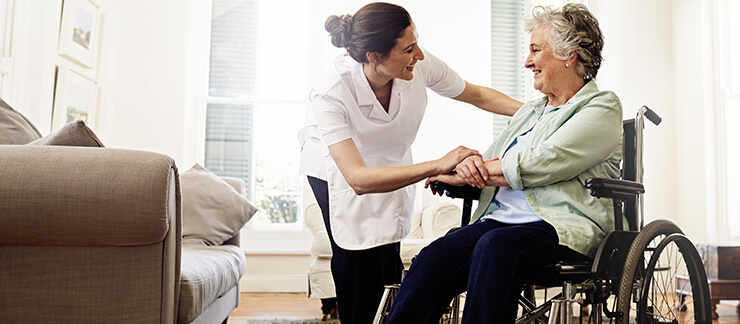
The Most Overlooked Step in Preparing for Your Elderly Loved One’s Upcoming Surgery
At least 20 percent of all Medicare patients admitted to a hospital are readmitted within 30 days of being discharged, per Medicare. Not only are readmissions an additional and unplanned expense for families, but they also cost US taxpayers around 15-20 billion dollars every year.
But like thousands of Americans in your shoes, there is a crucial detail often overlooked that can prevent hospital readmission, saving you both stress and money. It’s a care plan for what happens after the surgery, and it's key to avoiding readmission.
A Failure to Look Ahead
It’s natural to assume your loved one is out of the woods after successful surgery. It may initially make sense to spend all your time planning for the surgery.
Who is taking Mom or Dad to surgery, who is picking them up? What medications, if any, is he or she allowed to take before surgery? Are there any dietary restrictions?
These are the right questions to consider leading up to the surgery. But it's not until Mom or Dad is being picked up that reality sets in – life will be considerably more difficult for a while. It's also not uncommon for loved ones to be discharged before the family has made proper accommodations. And for the family member who has already been serving as the primary family caregiver, this can exacerbate a problem that’s already surfacing.
Caregiver Burnout
Over 40 million Americans are serving as unpaid caregivers for adults 65-years old and up, and some 90 percent are providing care for an aging relative, per the Bureau of Labor Statistics.
It may be nice to see so many Americans coming to the aid of their aging loved ones in need, but their efforts don’t come without a cost. Per the National Alliance for Caregiving, nearly 40 percent of family caregivers say they’re in “high-burden” situations.
Further, one study showed that the stress of caring for family members with dementia could impact a person's immune system up to three years post caregiving, astoundingly increasing a family caregiver’s chances of developing a chronic illness.
So it's evident that caregiving is not easy. But it’s imperative your elderly loved one receives quality home care, as it could mean all the difference in preventing readmission.
Adhering to a Discharge Plan
The best thing you can do in preparation for your senior loved one's surgery is to ensure proper care is arranged post discharge. An adequate discharge plan is created before your loved one leaves the hospital, and it's critical to keep him or her from going back.
According to Medicare, discharge planning is “a process used to decide what a patient needs for a smooth move from one level of care to another.” Only a physician can authorize your elderly loved one’s release from the hospital, but discharge planning can be completed by a nurse, case manager, social worker or someone else.
Components of a good discharge plan will include planning for medications, an environmental assessment (your loved one's home), treatment of any maladies, knowledge of any disease or illness, inpatient or outpatient referrals and a diet plan.
It’s often a team of qualified people weighing in. But regardless of who is creating it, adhering to it is most important. And the right professional assistance can ensure that happens.
From a Discharge Plan to a Care Plan
A care plan is your loved one’s first line of defense against hospital readmission. It’s a plan for the ongoing needs of your elderly loved one going forward. You can learn more about care plans and the pivotal role they play in readmission prevention among the elderly by clicking here.
But creating a good care plan doesn’t just happen. It involves the coordination of many different people, and most importantly, it cannot be static. Good care plans must evolve alongside your loved one’s needs. For that to happen, you need someone capable of creating a flexible care plan.
No matter the type of help you decide to retain for your loved one, preparing for his or her immediate life post-surgery is the most important thing you can do leading up to it.
For more information on how a professional caregiver can help execute both a discharge and a care plan, click here.


